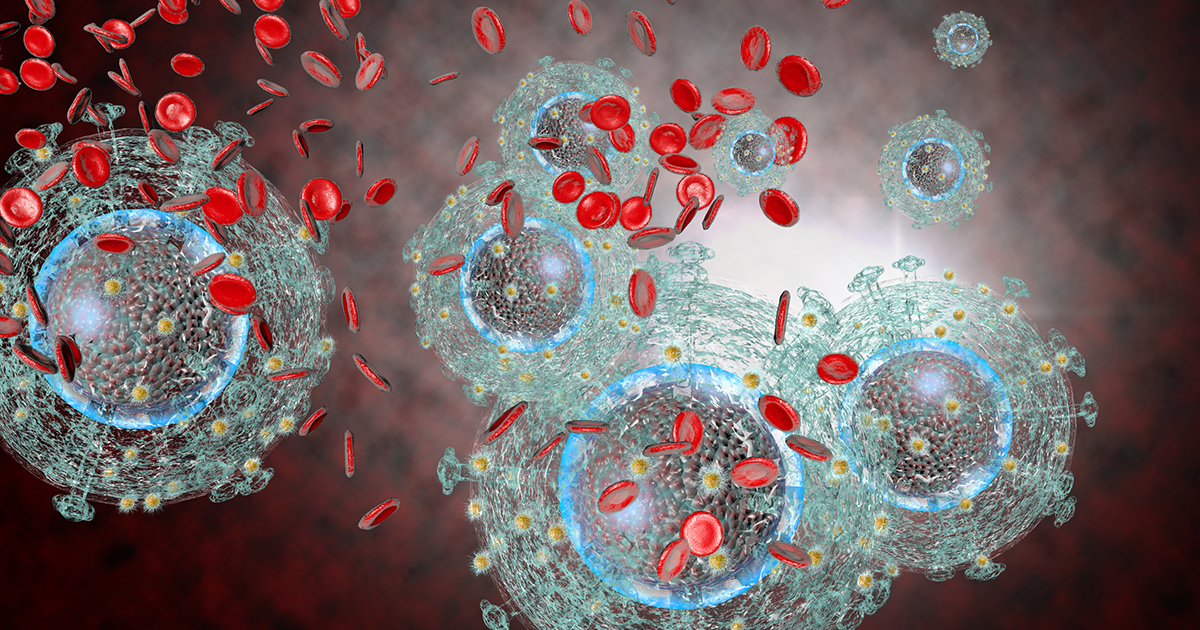
When you hear “virus,” you may think of minor, temporary illnesses, like the cold or 24-hour flu. But some viruses are also linked to certain kinds of cancer. As the medical community has learned more about these links, it has developed vaccines that, by protecting against certain viral infections, help prevent cancer. One of the most prominent examples is the human papillomavirus (HPV) vaccine, which was first developed a little more than a decade ago. “Awareness of viruses and their potential connections to cancer has definitely increased over the past decade,” says Natalie Godbee, DO, Gynecologic Oncologist at our hospital near Phoenix. “But there’s always room for improvement.” And many viruses linked to cancer don’t yet have vaccines designed to prevent them.
Viruses, infections and cancer
When viruses cause an infection, they spread their DNA, affecting healthy cells’ genetic makeup and potentially causing them to turn into cancer. HPV infections, for instance, cause the virus’ DNA to combine with the host’s DNA, disrupting the normal function of cells. Other viruses, such as human immunodeficiency virus (HIV) and hepatitis C virus (HCV), may increase a person’s risk of developing cancer by affecting the body’s immune system. In most cases, specific viruses only affect specific cells in the body, such as common cold viruses that impact the lining of the nose and throat. That’s why certain viruses are only linked with certain kinds of cancer.
Although most people infected with HPV don’t develop cancer, a few potent strains of the virus cause the vast majority of cervical cancer, the second most common cancer in women worldwide. “HPV causes about 98 percent of cervical cancer cases, so it is of high concern,” Dr. Godbee says. “Patients with HPV should have appropriate testing performed at the time of diagnosis, such as with a colposcopy, and should be followed routinely with screening exams.” The Pap test, or Pap smear, allows doctors to detect pre-cancerous changes in cervical cells, helping to facilitate early intervention efforts designed to prevent cervical cancer from developing. After the introduction of the Pap test in the 1950s, the rate of cervical cancer dropped significantly, Dr. Godbee says.
But HPV isn’t only linked to cervical cancer. It’s also linked to vaginal, vulvar, anal and head and neck cancers, making education efforts all the more critical to prevention. “We’ve known about the link between HPV and cervical cancer for years, but most people don’t know that this virus may also be a direct link to these other cancers,” Dr. Godbee says. And, even though men are infected with HPV at roughly the same rate as women, no screening exam is available to diagnose the virus in men.
Common viruses linked to cancer
Other common types of viruses linked to cancer include:
- The Epstein-Barr virus (EBV), which is a type of herpes virus most commonly associated with causing infectious mononucleosis, or “mono.” EBV infections increase the risk of nasopharyngeal cancer, some types of fast-growing lymphomas and some stomach cancers. Like HPV, EBV infections are common, but EBV-related cancer is not.
- Hepatitis B virus (HBV) and HCV, which cause viral hepatitis, a kind of liver infection. HBV- and HCV-induced chronic liver infections are rare, but when they occur, they raise the risk of liver cancer. Less than half of liver cancers in the United States are linked to HBV or HCV infection.
- HIV, which causes acquired immune deficiency syndrome (AIDS). HIV increases the risk for several types of cancer, including Kaposi sarcoma, cervical cancer, non-Hodgkin lymphoma, anal cancer and lung cancer.
“We’ve definitely seen benefits from HPV vaccines,” Dr. Godbee says. “It would be great to see vaccines developed for other viruses.”



